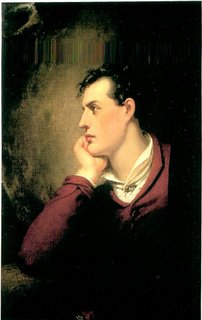 “But when the melancholy fit shall fall
“But when the melancholy fit shall fall
Sudden from heaven like a weeping cloud,
That fosters the droop-headed flowers all,
And hides the green hill in an April shroud”
–Keats
Every year, around this time, I get the winter blahs. I can’t stand the cold and gray skies, and it’s hard to concentrate on reading/writing/doing chores (not really much different from any other time when it comes to those chores, I guess!). I just like to crawl under the electric blanket and watch movies. Preferably costume epics and adaptations, like the ones Megan wrote about a few days ago. But this general mopiness made me curious about people in the Regency. Did they ever get tired of the gray skies, the drizzle? Ever think the sun will never come out again?
So, I came across a couple of articles online dealing with “melancholy” in the eighteenth century. It seems there were two types of melancholy–“natural” and “unnatural” (no mention of SAD!). “Natural” was considered to be brought on primarily by a black bile that could be dried up over time. This could be the result of certain foods, such as strong wines (and here I thought wine was the remedy!), and were accompanied by lifestyles that could nourish the condition, such as frequent intoxication and over-indulgence. One treatment, which sounds pretty nice and kind of spa-like to me, was a routine to bring balance between sleep, play, exercise, company, sex, and intellectual pursuits, as well as an attendant to keep the patient from being sad. It was then thought that the black bile could then dissipate, and the patient would return to normal.
The “unnatural” kind, though, was tougher. Maybe even the result of corruption from demons and spirits! (Though this is probably earlier than Regency–I read a great deal about it in Samule Johnson’s work). In this case, the sadness could descend toward manic episodes, fits of rage, and “eventual absolute madness.” So–demons, or maybe living somewhere like Alaska.
Johnson defined hypochndria as a condition that produces melancholy, or an intense fear that led to symptoms of melancholy. One case he documented was a women who thought she had a snake living in her intestines. The doctors showed her a snake they claimed came from said intestines, and she was cured. This sounds more like general craziness than melancholy, though!
All this made me try to remember a romance where characters suffered from depression, or melancholy, or any kind of persistent sadness, and I came up mostly blank. Most romance characters are a pretty perky lot, in general. Has anyone here read a book like that? Any thoughts on what such a story could be like?
And now that I’ve brought everyone down, I’ll sign off! I’m sure I have some movies waiting to be viewed….
p.s. Another very interesting book on this subject is Duncan Salkeld’s “Madness and Drama in the Age of Shakespeare”


